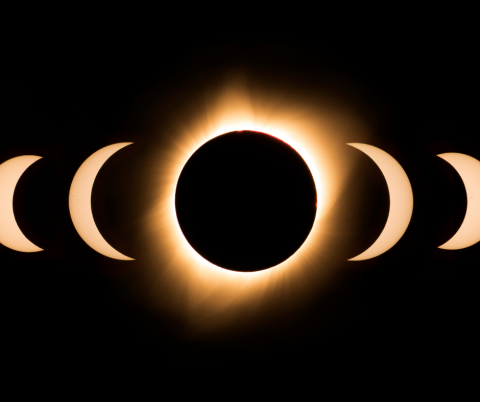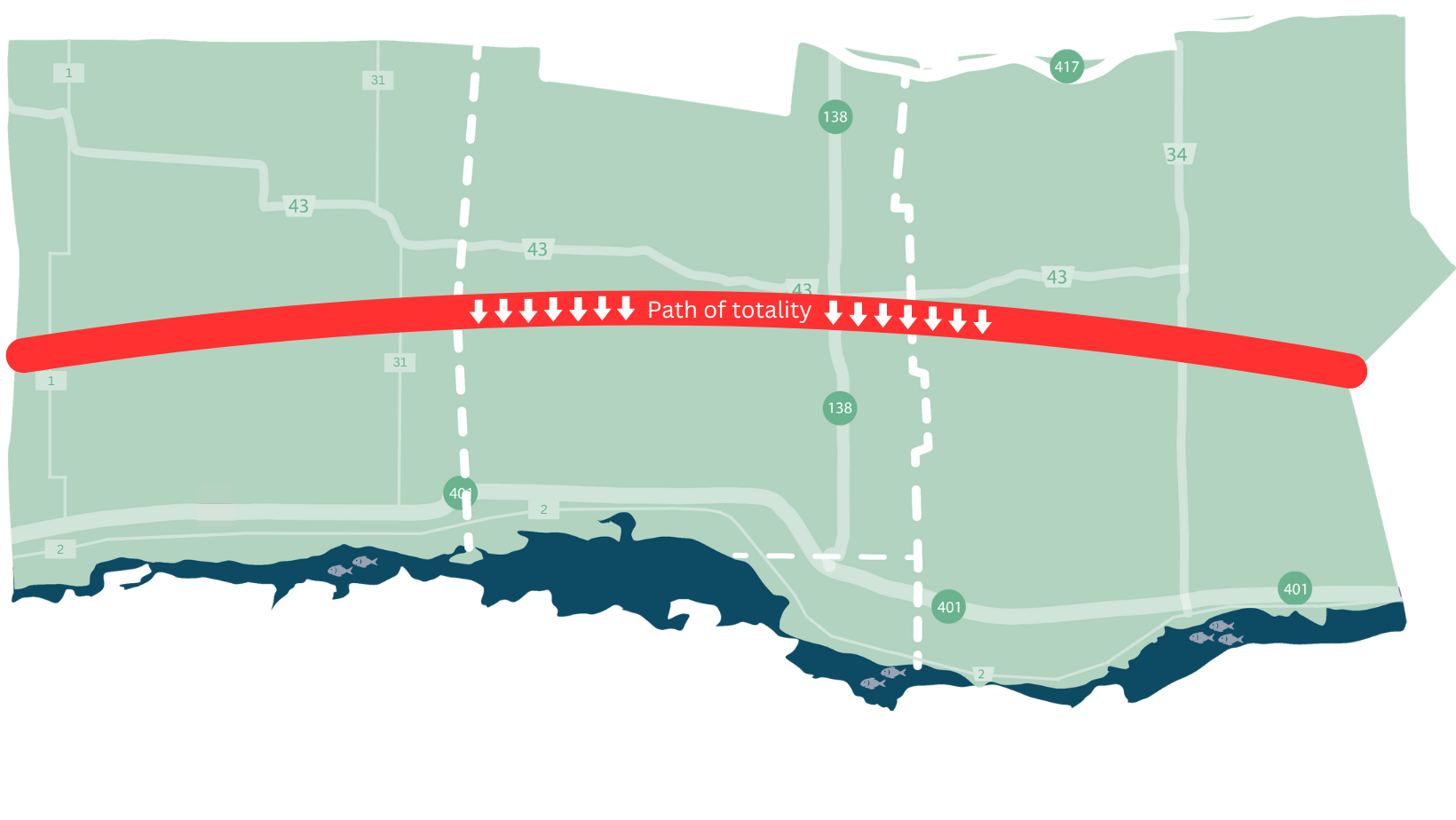
On April 8, 2024, at approximately 3:24 p.m. SDG Counties and the surrounding region will experience a once-in-a-lifetime event, a total solar eclipse. A narrow band, known as the ‘path of totality’ will transit across our region, as the Moon completely blocks the Sun and turns day into night for a little more than two minutes. Municipalities in Ontario that are within this narrow band of totality are bracing for a mass migration of eclipse enthusiasts that are expected to travel to view the spectacle.
Due to its geography, much of North Stormont is NOT within the path of totality that will see COMPLETE darkness. However, it's fair to say that our township will be about 95 per cent of totality. This means if you are at home watching the spectacle, you must keep safety glasses on at all times to avoid injury.
FREE GLASSES - Local viewing event
There is the potential for tens of thousands of travellers to call on parts of our region to enjoy the eclipse, presenting challenges with respect to traffic congestion and safety, while also placing a drain on local resources.
Eclipses explained
There are different kinds eclipses. For the purposes of the 2024 Total Solar Eclipse we have identified three different kinds of eclipses, and how they are created.
- Partial eclipse: Happens when the Sun is partially obscured by the Moon.
- Annular eclipse: Happens when the Moon passes between the Sun and Earth while it is at its farthest point from Earth. Because the Moon is farther away from Earth, it appears smaller than the Sun and does not completely cover the star.
- Total eclipse: Happens when the Moon completely covers the face of the Sun. To see it, you must be somewhere within a narrow path of totality. On April 8, 2024 much of SDG Counties will be included in the path of totality.
Eclipse safety
During an eclipse it is harmful to look directly at the Sun without specialized eye protection when the Moon begins to transit across the Sun. Viewing any part of the bright Sun through a camera lens, binoculars, or a telescope without a special-purpose solar filter secured over the front of the optics will INSTANTLY cause severe eye injury.
Use approved eclipse glasses or a handheld solar viewer during the partial eclipse phases before and after totality to safely look up. One can view the eclipse directly WITHOUT proper eye protection ONLY when the Moon completely obscures the Sun’s bright face – during the brief and spectacular period known as totality.
North Stormont is not located within the COMPLETE path of totality. If even a little bit of the bright Sun appears keep eclipse glasses on.
Path of totality
Every 18 months or so - somewhere in the world - a total solar eclipse takes place. The total phase of the eclipse, where the Moon completely covers the Sun, is visible along a narrow path of totality. Typically, the path is around 15,000 km (9,000 miles) long, but only about 150 km (90 miles) wide.
More details
- Solar eclipse handout (PDF)
- Solar Eclipse - Key Messages (PDF)
- MOH Hazard Identification and Risk Assessment (PDF)

